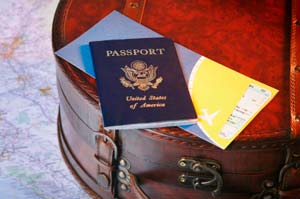Bariatric Surgery in Mexico
Many bariatric patients have been happy with their decision to travel to Mexico for bariatric surgery, but it is important to consider both the advantages and disadvantages before making this choice.

Bariatric surgery is expensive, and without insurance, it can be financially out of reach for many people in the United States. In an attempt to find a more affordable option, many Americans are traveling to locations out of the country where the medical costs are much lower. While having surgery close to home is preferred, for some the cost difference makes traveling an acceptable alternative.
One of the most popular destinations for bariatric surgery is Mexico, where the cost of treatment is about half of what it costs in the United States. While the low costs are enticing, there are additional factors to consider when traveling away from home for surgery.
Medical Considerations
There is much more to the bariatric process than just the surgery itself, from pre-op tests and pre-op diets to lifetime follow-up care, lap band fills, unexpected difficulties, and the possibility of undesirable side effects.
When traveling away from home for bariatric surgery, some of the medical factors to consider are:
- Travel time and expenses
- Verifying training and experience of bariatric surgeon
- Surgery setting and medical facilities available, i.e. hospital or clinic setting
- Arranging pre-surgery consultations, testing, and diet
- Arranging post-surgery check-up and testing
- Making provisions for after surgery support and medical care
- Scheduling long-term follow-up care and nutritional testing
- If gastric band surgery, what type of band is being used
- If gastric band surgery, finding a fill doctor

Transportation and Travel Plans
In addition to the medical considerations, there are also transportation and travel plans that must be arranged, such as:
- Length of stay, from pre-surgery testing to post-surgery release
- Airfare and scheduling a flight
- Transportation to and from the airport
- Transportation to and from the hotel
- Transportation to and from the medical facility
- Or, driving directions and information if driving to Mexico
- Hotel reservations
- Passport to re-enter the United States
- Bringing a support companion
Often, the bariatric surgeon has a travel coordinator that can help you with travel arrangements, hotel reservations, and transportation. It is important to find out what services are provided and what travel plans you will need to take care of on your own. A word of caution, this is not the appropriate time to schedule any sightseeing or vacation-type activities.
Pre-Surgery Testing
The pre-surgery tests are necessary for evaluating a person's overall health and establishing the need for bariatric surgery, even if the surgery is being performed in Mexico. Some of the common pre-surgery tests are: complete blood count, chemistry panel, urine test, electrocardiograph (EKG), chest X-ray, and screening for sleep apnea.
It is important to find out whether the pre-surgery tests are performed by the doctor in Mexico or if they need to be completed beforehand. Depending on who conducts the testing, this may or may not be an additional expense. The pre-surgery testing often totals about $1,000 if billed separately, but it may be included in a package price from the bariatric surgeon.
Choosing a Bariatric Surgeon in Mexico
There are many skilled and reputable surgeons that perform bariatric surgery in Mexico, but just like in the United States, it is important to verify the doctor's credentials and make sure that he or she is appropriately certified. Doing a background check and seeking personal testimonials into the reputation of a particular doctor and medical facility is very important. Ask about policies, eligibility, and pre-op requirements prior to scheduling surgery.
Make sure you
know what is
included in the
package price
and what is not.
It will also be necessary to decide whether you will be traveling to Mexico to visit the same bariatric surgeon for your post-surgery appointments and follow-up care or choosing another doctor at home. Since follow-up care is crucial for monitoring overall health and nutritional levels, this needs to be taken care of before surgery is performed.
Also, since the surgery is being performed out of the country, there may be no legal recourse if something goes wrong. Make sure you understand what is included in the package price and what is not.
Gastric Band Surgery
If you are having adjustable gastric band surgery, make sure the type of band being used is one that is approved for use in the United States, otherwise you will not be able to get band adjustments or appropriate medical care related to the device at home. Currently the only two gastric bands approved for use in the US are the LAP-BAND and REALIZE Band.
An additional consideration is scheduling lap band fill appointments. Unless you plan on traveling to Mexico for your band fills and adjustments, you will need to find a fill doctor near home before having surgery. Not all bariatric surgeons will take on patients from another doctor, so don't assume it will be easy to find a doctor to accept you as a patient after surgery or perform your fills if he or she did not perform the procedure.
After-Surgery Care and Support
The success of bariatric surgery is greatly determined by the level of care and support that a patient receives after surgery. Successful aftercare includes an exercise program, diet and nutritional counseling, behavioral therapy, support groups, follow-up exams, and nutritional testing. When you have surgery in the United States, it is common for the bariatric surgeon to include the necessary after-surgery care as part of a package. If you are choosing to have surgery in Mexico, you will need to make plans for appropriate long-term care after surgery. The importance of follow-up care cannot be emphasized enough and should not be ignored.
Related Articles
Social
Medical Tourism
Traveling across international borders for healthcare has increased over the last decade, due to high health care costs, lack of insurance coverage, long wait times, availability of inexpensive travel, and a greater number of countries catering to medical tourism.




